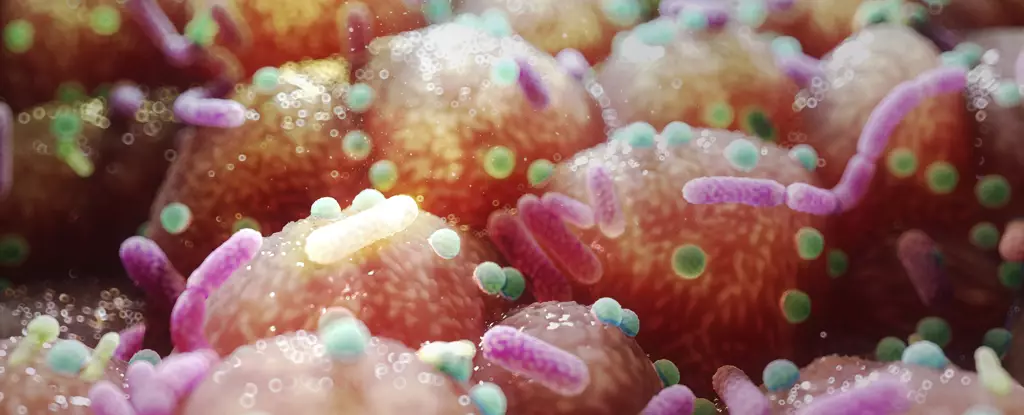Recent studies have revealed that the microbes living in our guts may play a crucial role in protecting us against excessive weight gain. Researchers at Vanderbilt University, led by biochemist Catherine Shelton, have made significant progress in understanding the relationship between gut bacteria and childhood obesity. Their findings show that exposure to antibiotics at a young age, combined with a high-fat diet, can lead to weight gain in mice. By studying the gut bacteria of these mice, the researchers have identified a drop in Lactobacillus bacteria, which correlates with the weight gain. In this article, we will explore this groundbreaking research and its potential implications for humans.
Previous research has linked disruptions in the gut microbiome to a decrease in a regulatory protein called PPAR-γ2, which is involved in fat processing in the intestines. In line with these findings, Shelton’s team observed a similar decrease in mouse cells that line their intestines. Through further investigation, they discovered that a molecule produced by Lactobacillus bacteria called phenyllactic acid interacts with the PPAR-γ2 receptor, influencing the transfer of lipids from the digestive tract. This interaction effectively blocks fat secretion in intestinal epithelial cells.
The researchers conducted experiments in which young mice were given phenyllactic acid, which provided protection against the metabolic dysfunction caused by a combination of early antibiotic exposure and a high-fat diet. The team also observed that multiple bacterial species, such as those belonging to the Bifidobacteriaceae and Peptostreptococcaceae families, contribute to phenyllactic acid production in the intestines. Interestingly, the abundance of these bacterial species decreases in mice fed a high-fat diet or exposed to both a high-fat diet and antibiotics.
While this research is still in its early stages, it holds promising implications for human health. Although the exact mechanisms may differ, humans share similar components in their gut microbiomes as mice. In fact, phenyllactic acid levels in baby poop have been found to vary based on the abundance of Bifidobacterium, highlighting the potential impact of gut bacteria on weight regulation in humans.
Lactobacillus bacteria, commonly found in probiotics and fermented foods like kimchi and kombucha, are known to produce phenyllactic acid. This suggests that incorporating probiotics into our diets may have beneficial effects on weight management. Some cultures already encourage the consumption of fermented milk, inadvertently providing this protective “therapeutic” to their children. Alongside probiotics, maintaining a healthy, low-fat diet may help mitigate the impact of antibiotics on the gut microbiomes of young individuals.
The research conducted at Vanderbilt University has shed light on the role of gut microbes in weight gain and the potential benefits of probiotics. By understanding the interaction between phenyllactic acid and the PPAR-γ2 receptor, the researchers have identified a mechanism through which the absence of certain gut bacteria can contribute to weight gain. While further studies are needed to fully understand the impact in humans, the findings suggest that probiotics and a healthy diet may play a crucial role in maintaining a healthy weight and preventing childhood obesity.


Leave a Reply